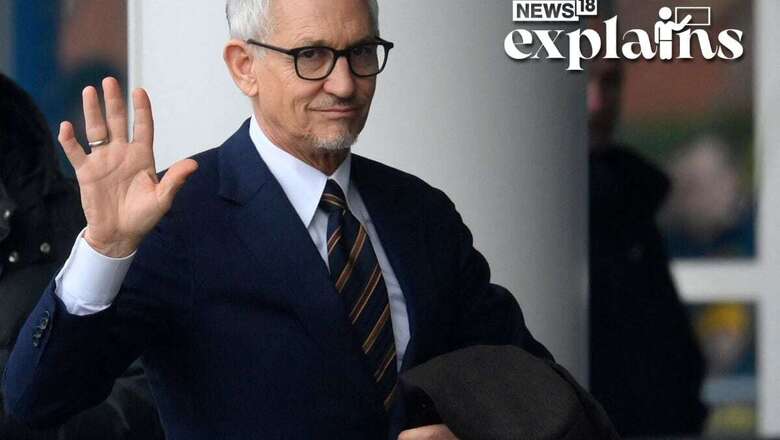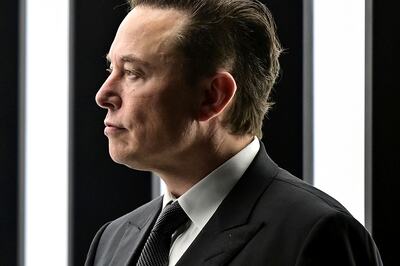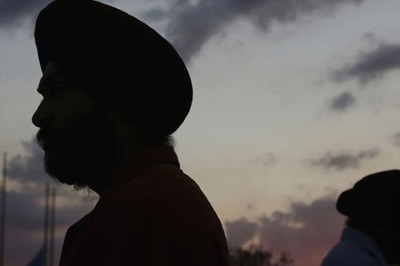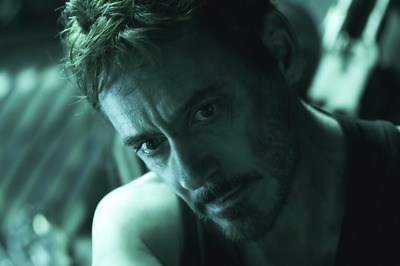
views
The BBC’s flagship football highlights show Match of the Day was cut short on Saturday as pundits and commentators pulled out after presenter Gary Lineker was taken off air by the corporation. Lineker was told to “step back” from the role he has held since 1999 on Friday after an impartiality row broke out over the former England striker’s comparison of the UK government’s rhetoric in tackling illegal immigration to Nazi-era Germany. READ MORE
First broadcast in 1964, Match of the Day is the world’s longest-running football television programme and has grown into a cultural phenomenon in Britain. For the first time it was broadcast without a presenter, pundits or even commentary with only crowd noise accompanying a 20-minute highlights package of six Premier League games, an hour less than scheduled. The programme’s famous theme tune was even dropped for an introduction apologising to viewers for the curtailed show.
But what is the controversy? News18 explains:
What Did Lineker Say?
Lineker was forced to “step back” from his duties presenting the flagship Premier League highlights show after accusing the UK government of using Nazi-era rhetoric in tackling illegal immigration. READ MORE
The controversy began with a dramatic video titled “Enough is Enough” by Home Secretary Suella Braverman. We must stop the boats,” Braverman said in the 78-second video, claiming the British asylum system is “overburdened” and unveiled a new Illegal Migration Law that will bar unauthorised immigrants from staying in the nation. Braverman added that such immigrants will be sent back to their home nation or “a safe third country, like Rwanda”.

Gary Lineker, who has previously housed refugees in his home, tweeted in response, “Good heavens, this is beyond awful.” When someone replied to his tweet, reminding him that he is “out of order”, Lineker said: “There is no huge influx. We take far fewer refugees than other major European countries. This is just an immeasurably cruel policy directed at the most vulnerable people in language that is not dissimilar to that used by Germany in the 30s, and I’m out of order?”
But the BBC said on Friday that England’s fourth highest goalscorer of all-time had breached guidelines on impartiality and the corporation would seek “an agreed and clear position on his use of social media” before an on-screen return. The decision caused chaos to scheduled sports programming across the BBC’s television and radio output.
Former England strikers Ian Wright and Alan Shearer were among the pundits who refused to take up their usual roles on Match of the Day, followed by the programme’s commentators.
As a result, the longest-running football television programme in the world was aired for the first time without a presenter, pundits or even commentary in a shortened 20-minute highlights package of six matches from the English top-flight. Weekend preview show Football Focus and results programme Final Score were also pulled from the schedule, while BBC Radio 5Live’s coverage was disrupted.
BBC Chief Says Hoping for Resolution
The BBC’s director general Tim Davie said he will not resign. “Everyone wants to calmly resolve the situation,” Davie said in a BBC interview. When asked if he should resign over the crisis, Davie replied: “Absolutely not.”
“I think that my job is to serve licence-fee payers and deliver a BBC that is really focused on world-class impartial landmark output, and I look forward to us resolving this situation and looking forward to delivering that.
He added: “To be clear, success for me is Gary gets back on air and together we are giving to the audiences that world class sports coverage which, as I say, I’m sorry we haven’t been able to deliver today.”
British Prime Minister Rishi Sunak said he hoped the stand-off can be “resolved in a timely manner.”
Who is Gary Linekar?
Gary Lineker rose to fame as a goalscoring hero for England at World Cups before becoming the leading face of sports broadcasting for the BBC over the past two decades.
Born in Leicester in 1960, Lineker realised his boyhood dream by turning professional with his home town club. He scored over 100 goals in six years at the Foxes and was later honoured as a Freeman of the City of Leicester.
But his goalscoring prowess at a side not competing for trophies at the top of the English game saw him snapped up by then champions Everton in 1985, said a report by AFP. In just one season on Merseyside, Lineker was again the league’s top scorer as Everton narrowly missed out on a league and cup double to local rivals Liverpool.
The 1986 World Cup was to take Lineker’s profile to a new level.
His six goals, before England bowed out to Argentina in a hugely controversial quarter-final, saw him win the Golden Boot ahead of Diego Maradona. His performances caught the attention of Barcelona, who paid a princely sum at the time of £2.8 million ($3.4 million) for his services.
Lineker spent three years at the Camp Nou and was christened with the nickname “El Matador” for his predatory finishing. On the field he won the Copa del Rey in 1988 and Cup Winners’ Cup a year later, but the highlight of his time in Catalonia was a hat-trick in a 3-2 win over Real Madrid in 1987.
Lineker is also a fluent Spanish speaker thanks to his spell at Barcelona and presents live matches for La Liga TV’s English channel. He returned to England in 1989 as Tottenham beat out Manchester United for his signature and finally won a trophy in English football when Spurs lifted the 1991 FA Cup.
In between there was more World Cup heartache in 1990 as despite Lineker’s four goals, including one in the semi-finals, England lost in the last four to Germany on penalties. The final stage of his club career was a short stint in Japan with Grampus Eight before retiring in 1994.
A rise to the top of the sports broadcasting then began with appearances as a pundit BBC radio and TV. He took over as host of Match of the Day in 1999 and also fronted BBC coverage of other major events such as Olympic Games.
Lineker’s Refugee Stance
As a player, Lineker boasted an impeccable disciplinary record as he never received a yellow or red card during his 16-year career.
But his desire to speak out on political matters has made him much more difficult for BBC bosses to handle due to the corporation’s committment to impartiality.
Lineker has hosted refugees in his home and in 2016 criticised treatment of refugees in the UK as being “hideously racist and utterly heartless”.
In a public spat with the BBC’s cricket correspondent Jonathan Agnew in 2018 over tweets about the Brexit process, Lineker posted: “I’ll continue to tweet what I like and if folk disagree with me then so be it.”
That stance reached breaking point this week, but the esteem with which Lineker is held by his colleagues has proved an extra headache for the BBC hierarchy.
One-by-one leading pundits and commentators have pulled out of Saturday’s Match of the Day in a show of solidarity, leaving one of the BBC’s landmark shows in disarray.
With inputs from AFP
Read all the Latest Explainers here



















Comments
0 comment